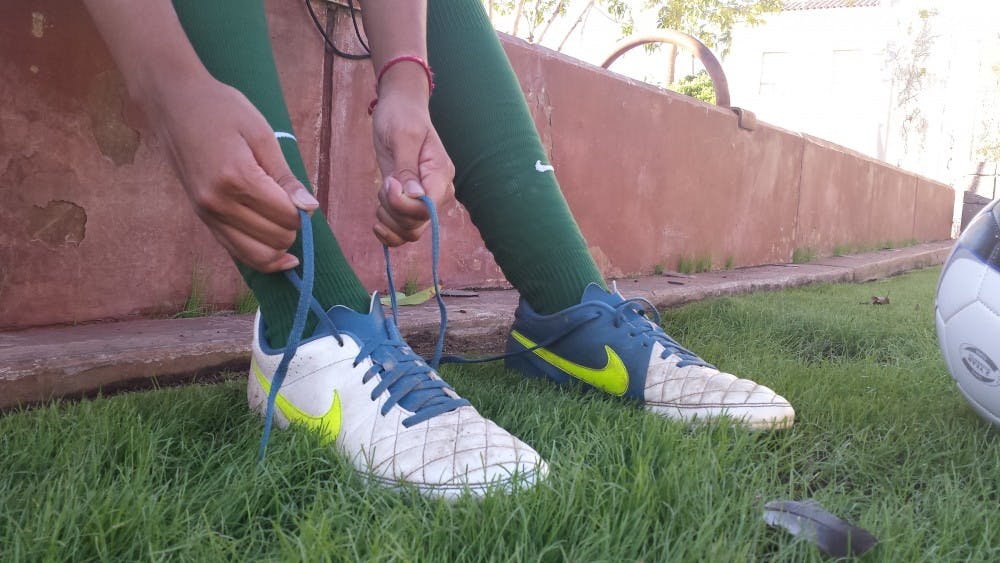Sexism is not uncommon, but it has found itself in a very surprising place at ASU: the intramural soccer games. In attempt to "even the score" between co-ed and unisex teams, the National Intramural-Recreational Sports Association created a rule that made goals scored by women worth more points than goals scored by men.
I know this was an effort to make the games more fair, but this rule actually demeans the female players and made the games unfair. NIRSA and the Sun Devil Fitness Complex should drastically rethink this decision and pull it from their rulebooks.
When a woman scores in a co-ed soccer game, it is worth two goals instead of the normal one goal. This rule is unfair and it is degrading to many of the women playing in these leagues.
According to the student coordinator, Adam Engelbert, the rules are in place so that both genders are fully involved in the game. Engelbert claims that in the past men would not pass to or involve women in the co-ed games.
Whether or not it intended to, this rule implies that women need this extra advantage because they aren't as good at sports, or aren’t as athletic as men.
“We’re being treated unequal even though they want to be fair and yeah these are bigger guys and girls may not be able to match up to that, but at least give us a chance of being able to show people what we got,” said Reese Gonzalez, exercise and wellness sophomore.
Engelbert claimed that one way for women who want the rule to be gone is to be “consistently good or better than the boys. Let (their) play be so dominant that the governing body has no choice but to change the rules.”
Gonzalez has first hand experience with the rule, and even though it is technically to her advantage, she still dislikes it. In one game Gonzalez scored three goals, which were counted as six goals because she is a woman. With those goals, her team reached the mercy rule and the game concluded early.
“To be honest, it’s just very unfair,” Gonzalez said. “I feel like the school thinks that girls can’t play as well as guys and I definitely think that we can.”
Women can definitely play as well, and even better, than many men. In many cases, teams have tactically put women as the forwards so they have more chances to score and get the extra goal. Teams know that these women are just as capable of scoring as the men are, and the NIRSA should, too.
“For girls who have played this sport before or are just competitive in general, I know for a fact that they don’t like this rule because they want to show boys up,” Gonzalez said.
“We want to be treated just as equal as guys, no matter what the situation is. We want to earn it, that’s kind of just in our competitive nature to earn something rather than just be given.”
According to Engelbert, if people want to see this rule be changed, they need to be very vocal to people in charge at NIRSA and be persistent about getting the rule eliminated.
Many people worry about the blatant sexism in national sports, like the discrepancy in pay between the US National men's and women's teams salaries, despite the women's much greater successes.
It's time to move past these injustices and view women as equals in every aspect of society.
As we make more feminist advances, we need to advocate for small things like abolishing this ASU rule. Women are just as good as men, and it’s time for everyone to start treating them like it. Women don’t need and don’t want to be given the extra goal in a game; they want to be treated equally.
Reach the columnist at kmarlin1@asu.edu or follow @kynan_marlin on Twitter.
Editor’s note: The opinions presented in this column are the author’s and do not imply any endorsement from The State Press or its editors.
Want to join the conversation? Send an email to opiniondesk.statepress@gmail.com. Keep letters under 300 words and be sure to include your university affiliation. Anonymity will not be granted.
Like The State Press on Facebook and follow @statepress on Twitter.




